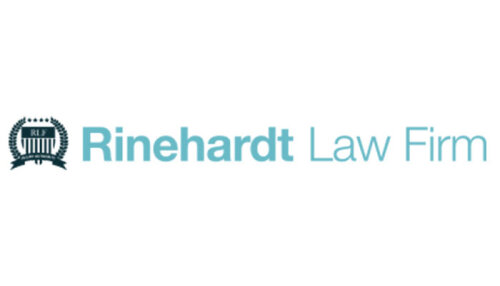Best Premises Liability Lawyers in Ontario
Share your needs with us, get contacted by law firms.
Free. Takes 2 min.
List of the best lawyers in Ontario, United States
1. About Premises Liability Law in Ontario, United States
Note: Ontario is a province in Canada, not part of the United States. This guide focuses on Premises Liability law under Ontario law. If you meant a US state named Ontario, please specify the actual state for a US focused guide.
Premises liability is a branch of tort law that deals with injuries arising from unsafe or defective conditions on someone else’s property. In Ontario, the law requires occupiers to take reasonable care to keep their premises safe for visitors. The core concept is to determine whether the property owner or occupier failed to maintain a reasonably safe environment and whether that failure caused an injury.
Ontario relies heavily on the Occupiers' Liability Act to set out duties of care for those who control premises. Courts in Ontario apply the Act together with general negligence principles to decide who bears responsibility and how damages are allocated. If you were injured on a store, apartment complex, sidewalk, or other premises, a solicitor can assess whether duty, breach, causation, and damages have been established.
“The occupier owes a duty to take reasonable care to make the premises reasonably safe for visitors.”
Occupiers' Liability Act, Ontario
In Ontario, a key factor is whether you were an invitee, licensee, or trespasser, and what duty of care applies in each case. The analysis often turns on weather conditions, maintenance history, warning signs, and the foreseeability of harm. For many injuries, the statute of limitations and proof of fault also influence the claim's viability.
“The Act imposes a duty on occupiers to take reasonable care for the safety of persons entering the premises.”
Occupiers' Liability Act, Ontario
For practical guidance, consider consulting a solicitor who specializes in civil litigation and premises liability. They can explain how Ontario rules apply to your specific setting, such as a mall, apartment building, or municipal sidewalk. You will also need to understand how limitations periods affect when a claim must be filed.
2. Why You May Need a Lawyer
A Premises Liability lawyer in Ontario can protect your rights and improve your chances of a fair outcome. Below are concrete, real‑world scenarios where legal counsel is typically essential.
- Slip and fall in a grocery store with no warning signs. You slipped on a wet floor that had no cautionary signage. A lawyer can assess whether the store breached its duty of care and help recover medical costs and lost wages.
- Broken stairs in a condo building causing a fall. If a hallway railing was loose for months and no repairs were made, a solicitor can pursue compensation for injuries and damages tied to maintenance failures.
- Ice and snow hazards on a municipal sidewalk leading to injury. City or town premises may be held liable if they failed to clear or warn about dangerous conditions in a timely manner.
- Water damage and mold in rental units resulting in health issues. Landlords who neglect repairs may be liable for damages related to hazardous conditions on the premises.
- Elevator or elevator lobby defects causing injuries in a high‑rise building. A property owner may be responsible for maintenance failures that create a dangerous environment.
- Injuries from a defective doorway or building design in a storefront. Design or structural defects can create a premises liability claim against the occupier or manager.
3. Local Laws Overview
Ontario has a well defined framework for premises liability cases. The main statute is the Occupiers' Liability Act, which sets out the duty of care that occupiers owe to people entering their premises. In addition, the Limitations Act governs how long you have to bring a claim, which is critical for planning your legal strategy.
Occupiers' Liability Act
The Occupiers' Liability Act establishes the duty of care that an occupier owes to entrants on their premises. It focuses on reasonable care to maintain premises in a reasonably safe condition and to warn of known hazards. This Act is central to most premises liability claims in Ontario.
- Statute: Occupiers' Liability Act, R.S.O. 1990, c. O.2
- Official source: https://www.ontario.ca/laws/statute/90o02
“The occupier owes a duty with respect to the safety of the premises and must protect visitors from hazards that are reasonably foreseeable.”
Occupiers' Liability Act, Ontario
Limitations Act
The Limitations Act determines the time limits within which a claim must be filed in Ontario, including premises liability cases. Missing the deadline can bar your right to sue, even if the injury is serious. It is important to confirm the applicable period with a solicitor.
- Statute: Limitations Act, 2002, S.O. 2002, c. 24
- Official source: https://www.ontario.ca/laws/statute/02l24
Ontario also relies on common law principles, including negligence concepts, to interpret and balance fault among parties. A lawyer can help you navigate how these principles interact with statutory duties when pursuing a claim. For more detailed statutory text and updates, consult the e‑Laws site on Ontario's government portals.
4. Frequently Asked Questions
What is Premises Liability in Ontario?
Premises liability covers injuries caused by unsafe conditions on someone else’s property. You typically claim under the Occupiers' Liability Act and general negligence principles. A lawyer can evaluate duty, breach, causation, and damages in your case.
How do I start a premises liability claim in Ontario?
Begin by collecting evidence and seeking a medical evaluation. Then contact a qualified solicitor to review your facts and determine if the Occupiers' Liability Act applies. They will guide you through the filing steps and timelines.
When does the statute of limitations apply to my case?
Most premises liability claims must be filed within two years of the injury date. There are exceptions for minor injuries and certain scenarios. A lawyer can confirm the precise deadline for your situation.
Where should I file a premises liability claim in Ontario?
You typically file in the Ontario Superior Court of Justice or, in some cases, a notice of claim with the appropriate municipality. A solicitor will advise on the correct court and process for your facts.
Why should I hire a premises liability lawyer in Ontario?
A lawyer can assess the duty of care, gather evidence, quantify damages, and negotiate settlements. They help you avoid filing errors that could jeopardize your claim.
Can I sue for injuries from a landlord or tenant's premises?
Yes, if the injury arose from the occupier's failure to maintain reasonably safe premises. Your lawyer will determine who qualifies as the occupier and who can be held responsible.
Should I pursue small claims or a higher court for premises injuries?
Most premises liability claims exceed small claims limits due to complex issues and damages. A civil litigation lawyer can advise on the most appropriate forum for your case.
Do I need a lawyer for a slip and fall on a municipal sidewalk?
Often yes. Municipal liability is nuanced and relies on timing, notice of hazards, and jurisdiction. A solicitor can assess whether the municipality may be liable and how to proceed.
Is it possible to recover medical expenses in Ontario premises cases?
Yes. You can seek compensation for medical costs, rehabilitation, and related expenses if you prove the injury was caused by the premises condition and the occupier breached a duty of care.
What counts as an occupier under the Occupiers' Liability Act?
An occupier is typically someone who has control over the premises, such as a landlord, building manager, or business owner. The Act extends liability to those who manage or control the space.
How much does a premises liability attorney cost in Ontario?
Costs vary by case complexity and fee arrangements. Many lawyers offer initial consultations, and some may work on a contingency basis for certain claims.
How long does a typical premises liability case take in Ontario?
Many cases settle within 6 to 18 months. If a trial is necessary, the process can extend to 1-3 years or more depending on court calendars and case complexity.
Do I have to prove fault or can I rely on negligence per se?
You generally must prove fault through breach of a duty of care and causation. Negligence per se applies when a statute has been violated and that violation causes harm.
What is the difference between an invitee and a licensee in Ontario?
An invitee is someone invited onto the premises for a purpose connected with the occupier’s business. A licensee enters with permission but not for business purposes. The duty of care can differ based on status.
5. Additional Resources
- Ontario Government - Occupiers' Liability Act - Official statute text and updates on the duty of care for occupiers. https://www.ontario.ca/laws/statute/90o02
- Ontario Government - Limitations Act - Official text on filing deadlines for civil claims, including premises injuries. https://www.ontario.ca/laws/statute/02l24
- Law Society of Ontario (LSO) - Regulates lawyers and provides tools to find counsel for premises liability matters. https://lso.ca/
- CanLII - Free access to Ontario case law, statutes, and court decisions related to premises liability. https://www.canlii.org/
6. Next Steps
- Identify your jurisdiction and set expectations. Confirm you are dealing with Ontario law and note your injury date, location, and who was responsible. This helps determine the applicable rules and deadlines. Timeframe: 1 week.
- Gather evidence and preserve the scene. Take photos, collect receipts, and obtain medical reports. Preserve communications with the property owner or manager. Timeframe: 1-2 weeks after the incident.
- Consult a premises liability solicitor in Ontario. Schedule a paid or free initial consultation to review your facts and remedies. Timeframe: 1-3 weeks to arrange and attend.
- Review potential forms of compensation. Discuss medical costs, rehabilitation, lost earnings, and pain and suffering. Timeframe: during the initial case assessment.
- Decide on a strategy with your lawyer. Your solicitor will outline settlement options, negotiation timelines, and whether a claim should be filed. Timeframe: 1-3 weeks after assessment.
- File the claim if appropriate. Your attorney will prepare the claim and ensure all deadlines are met. Timeframe: 2-4 weeks after strategy approval; subject to limitations.
- Monitor progress and adjust expectations. Court schedules and settlements vary; typical resolutions occur within 6-18 months for settlements, or longer for trials. Timeframe: 6-24 months for many cases.
Lawzana helps you find the best lawyers and law firms in Ontario through a curated and pre-screened list of qualified legal professionals. Our platform offers rankings and detailed profiles of attorneys and law firms, allowing you to compare based on practice areas, including Premises Liability, experience, and client feedback.
Each profile includes a description of the firm's areas of practice, client reviews, team members and partners, year of establishment, spoken languages, office locations, contact information, social media presence, and any published articles or resources. Most firms on our platform speak English and are experienced in both local and international legal matters.
Get a quote from top-rated law firms in Ontario, United States — quickly, securely, and without unnecessary hassle.
Disclaimer:
The information provided on this page is for general informational purposes only and does not constitute legal advice. While we strive to ensure the accuracy and relevance of the content, legal information may change over time, and interpretations of the law can vary. You should always consult with a qualified legal professional for advice specific to your situation.
We disclaim all liability for actions taken or not taken based on the content of this page. If you believe any information is incorrect or outdated, please contact us, and we will review and update it where appropriate.










